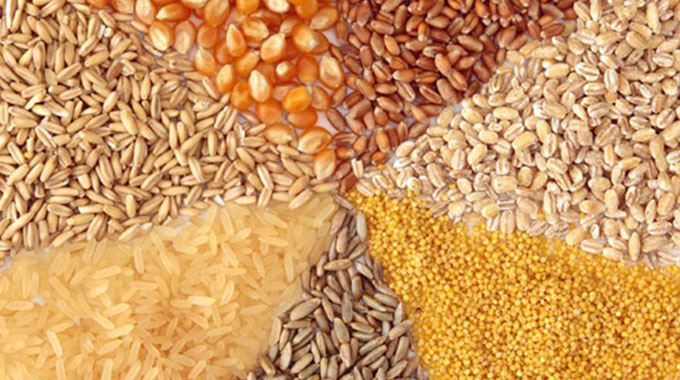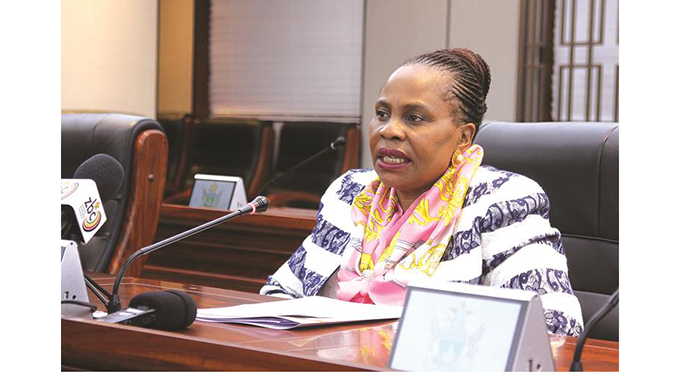Source: Ministry, NUST ink climate deal | Herald (Business)

Business Reporter
The Ministry of Environment, Climate, Tourism and Hospitality Industry has signed a Partnership Agreement on climate change mainstreaming research programme with the National University for Science and Technology (NUST), an accord which seeks to roll out programmes and projects that supports climate adaptation.
Under the agreement, the participating universities will offer training and undertake conventional researches to Provincial Development Committees (PDCs) as a tool for analysing impacts and supporting innovations to upscale climate change national adaptation strategies.
The Partnership Agreement will be initiated under the National Adaptation Plan (NAP), a process that succour countries to conduct a comprehensive, medium and long-term climate adaptation planning.
It (NAP) is a flexible process that builds-on each country’s existing adaptation activities and supports the integration of climate change into a national development planning, policies, and programmes.
The agreement encompassed with a number of trainings about climate change for representatives of each PDC also allows universities and PDCs to embark on local researches on climate change challenges, local priorities and interventions that can be implemented towards climate adaptation in their respective districts and provinces.
The initiative comes after the Government has unveiled a US$150 000 research grant for the enhancement of the capacity building of sub-national authorities to integrate climate change along the lines of devolution.
“Climate change is a global problem but adaptation to its impacts need to be implemented at the local level, by recognising this, Government has partners with all state universities to conduct a climate change main-streaming training and main-streaming programme targeting members of their respective PDCs.”
This was said by Environment, Climate, Tourism and Hospitality Industry Minister Mangaliso Ndlovu during the signing of a Partnership Agreement with NUST last Friday.
He said that partnership of agreement between Government and universities support the nation in main-streaming climate change into a development planning process.
“National University for Science and Technology (NUST) as one of the seven state universities that the Ministry is partnering with to conduct a climate change main-streaming training and main-streaming programme targeting members of their respective Provincial Development Committees (PDCs).
“The main-streaming of climate change in development planning and budgeting is under the flagship programme of the National Adaptation Planning (NAP) process,” he said.
Minister Ndlovu said the strengthening of national adaptation strategies in the country will ensure food security and enhance capacity building aimed at creating a green economy by 2030.
“The NAP provides for an opportunity to reduce vulnerability of our communities to the impacts of climate change whilst also facilitating for climate change main-streaming in relevant development planning frameworks.
“One of the important pillars of the National Adaptation Planning (NAP) process is capacity building under which a research programme has been designed to train members of the Provincial Development Committees (PDCs) for all provinces who are important pillars for the integration of climate change in development planning by means of a research programme.
He added: “To successfully roll out this training and research programme and enhance the contribution of the research and academia sector in national response to climate change, the Ministry is partnering with seven state university namely: the National University of Science and Technology, University of Zimbabwe, Chinhoyi University of Technology, Midlands State University, Great Zimbabwe University, Bindura University of Science and Technology and Lupane State University with the first signing session of the Partnership Agreement being held today with the National University of Science and Technology (NUST).”
At the same event Minister Ndlovu handed over the technology equipment to Bulawayo Polytechnical College as part of the capacity building support to all seven polytechnics that offer training in refrigeration and air conditioning. He said that the donation of technology equipment was part of Ministry’s efforts in enabling activities for the Hydro-Fluorocarbons phase down in the refrigeration and air conditioning sector.
“My Ministry through the National Ozone Unit is implementing the hydro-chloro-flouro-carbon (HCFC) phase out management plan (HPMP) and the hydro-flouro-carbon (HFC) phase down programme in line with the provisions of the Montreal Protocol on Substances that deplete the Ozone Layer.
“Under the HPMP and the HFC phase down programmes, the Ministry is assisting in the training of refrigeration and air conditioning practitioners in collaboration with the country’s seven Polytechnics that offer courses in refrigeration and air conditioning,” Minister Ndlovu has said.
He chronicled that the exercise will be focusing on polytechnics training of technicians in “Good Refrigeration Practices” as well as safe use of refrigerants such as hydrocarbons.
“As we all know, hydrocarbons are being adopted as they are environmentally sound replacements for HCFCs and HFCs. Assistance has been given to polytechnics in the form of tools, equipment and capacity development.
“The donation of laptops and LCD projectors is over and above the previous donations of refrigerant recovery machines, manifold gauge sets, pinch-off tools, vacuum gauges and vacuum pumps, charging scales, leak detectors, recovery cylinders, and compressors, among others.”
Speaking at the same event NUST vice chancellor Professor Mqhele Dlodlo, said that in order for climate change adaptation to be sustainable and applicable on a wide scale, it must be incorporated, integrated or “main-streamed” into the policy apparatus of Government.
“Climate change is upon us and we need to urgently address it. As States universities, it is our mandate to help the Government and citizens to respond to the evolving climate change phenomenon through mitigation and adaptation efforts towards building climate resilience.
“Adequate climate change education, trainings and awareness, for example, are important at this period of time as they supports in build safety nets against climate-related shocks and disasters in the country. Climate change is one of the biggest threats facing the global economy with developing countries such as Zimbabwe, being more vulnerable due to our low adaptive capacity, limited climate knowledge and over-reliance on climate sensitive sectors,” has said.
The post Ministry, NUST ink climate deal appeared first on Zimbabwe Situation.


